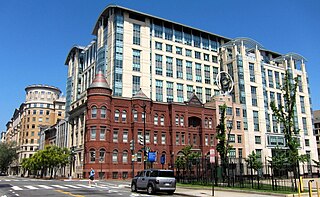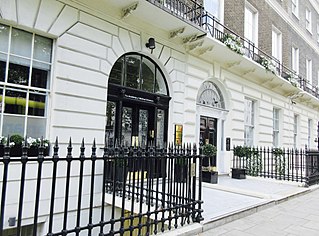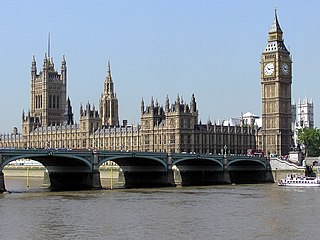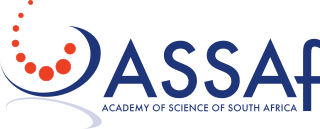Related Research Articles

The National Academies of Sciences, Engineering, and Medicine (NASEM), also known as the National Academies, is a congressionally chartered organization that serves as the collective scientific national academy of the United States. The name is used interchangeably in two senses: (1) as an umbrella term or parent organization for its three sub-divisions that operate as quasi-independent honorific learned society member organizations known as the National Academy of Sciences (NAS), the National Academy of Engineering (NAE), and the National Academy of Medicine (NAM); and (2) as the brand for studies and reports issued by the unified operating arm of the three academies originally known as the National Research Council (NRC). The National Academies also serve as public policy advisors, research institutes, think tanks, and public administration consultants on issues of public importance or on request by the government.
The Royal Academies for Science and the Arts of Belgium (RASAB) is a non-governmental association which promotes and organises science and the arts in Belgium by coordinating the national and international activities of its constituent academies such as the National Scientific Committees and the representation of Belgium in international scientific organisations.

The SIB Swiss Institute of Bioinformatics is an academic not-for-profit foundation which federates bioinformatics activities throughout Switzerland.

The Academy of Medical Sciences is an organisation established in the UK in 1998. It is one of the four UK National Academies, the others being the British Academy, the Royal Academy of Engineering and the Royal Society.

IHE Delft Institute for Water Education is the largest international graduate water education facility in the world and is based in Delft, Netherlands. Delft is a world renowned knowledge centre on water infrastructure, technology and sciences, and attracts high-level students and scientists from around the globe. IHE Delft cooperates with Delft, the water knowledge city, and water related institutes based in Delft. The Institute confers fully accredited MSc degrees, and PhD degrees together with partners in the Netherlands. Since 1957 the Institute has provided graduate education to more than 23,000 water professionals from over 190 countries, and is a flagship institute in the UN-Water family.

The Parliamentary Office of Science and Technology (POST) is the Parliament of the United Kingdom's in-house source of independent, balanced and accessible analysis of public policy issues related to science and technology. POST serves both Houses of Parliament.

The Organization for Women in Science for the Developing World (OWSD) is an international organisation that provides research training, career development and networking opportunities for women scientists throughout the developing world at different stages in their career. It was founded in 1987 and was officially launched in 1993. The organisation was formerly known as the Third World Organization for Women in Science (TWOWS). It is a program unit of UNESCO and based at the offices of The World Academy of Sciences in Trieste, Italy.
The American Society for Cell Biology (ASCB) is a professional society that was founded in 1960.
The Swiss Academies of Arts and Sciences is a Swiss organization that supports and networks the sciences at a regional, national and international level. They are designated by the Federal Act to Promote Research and Innovation to promote research together with the Swiss National Science Foundation.

The Academy of Science of South Africa (ASSAf) is the national science academy in South Africa. It was started in 1996, and encompasses all fields of scientific work. Its legal foundation is the Academy of Science of South Africa Act, Act 67 of 2001, which came into operation in May 2002.

The Commission on Science and Technology for Sustainable Development in the South (COMSATS) is an inter-governmental organization, having a membership of 27 developing countries from three continents, Latin America, Africa and Asia. Twenty four S&T/R&D institutions of developing countries are affiliated with COMSATS as members of its Network of International S&T Centers of Excellence for Sustainable Development in the South. The organization aims at sustainable socio-economic uplift of the developing countries through scientific and technological means while adopting North-South and South-South cooperation.
The Australian Academy of Science National Committees represent the established, emerging and interdisciplinary scientific fields in Australia.
In Ivory Coast, a country in West Africa, scientific output has been relatively modest. Scientists in Ivory Coast produced only 10 scholarly articles per million inhabitants in international journals in 2014, compared to a continental average of 20 per million. Between 2008 and 2014, scientists published mostly in biological sciences, followed by medical sciences, geosciences, agriculture and chemistry. The country also has few international collaborations, compared to the rest of the continent: whereas more than eight out of ten articles had a foreign co-author in most countries in 2014, the rate in Ivory Coast was 73%.
The National Documentation Centre is a Greek public organisation that promotes knowledge, research, innovation and digital transformation. It was established in 1980 with funding from the United Nations Development Programme with the aim to strengthen the collection and distribution of research-related material, and to ensure full accessibility to it. It has been designated as a National Scientific Infrastructure, a National Authority of the Hellenic Statistical System, and National Contact Point for European Research and Innovation Programmes. Since August 2019, it has been established as a discrete public-interest legal entity under private law, and is supervised by the Ministry of Digital Governance. The management bodies of EKT are the Administrative Board and the Director who, since 2013, has been Dr. Evi Sachini.

The Center for Life Detection (CLD) is a collaboration among scientists and technologists from NASA’s Ames Research Center and Goddard Spaceflight Center, which formed in 2018 to support the planning and implementation of missions that will seek evidence of life beyond Earth. CLD is supported by NASA’s Planetary Science Division and is one of three core teams in the Network for Life Detection. CLD’s perspectives on life detection science and technology development are summarized in “Groundwork for Life Detection”, a white paper submitted to and cited in the 2023-2032 Planetary Science and Astrobiology Decadal Survey.

The Sudanese National Academy of Sciences (SNAS) is a non-governmental organisation based in Khartoum, Sudan, that aims to promote the growth of the science and research sector in Sudan through collaboration in areas of education, science, technology, and research.
The Kenya National Academy of Sciences (KNAS) is an independent academic institution, founded on 2 November 1983. KNAS collaborates with the Government of Kenya, scientific organisations, the scientific community, and the public to promote the use of scholarly and scientific knowledge and technology for national development. KNAS encompasses all scientific disciplines, including humanities and technology. It is associated with the International Science Council, the InterAcademy Partnership, and the Network of African Science Academies.
The Zambia Academy of Sciences (ZaAS) is a non-profit organisation that provides perspectives on scientific matters and contributes to the nation's scientific education. It includes 42 members and fellows from various scientific disciplines, including academia, public and private sectors. The academy has a draft constitution and is subject to an Act of Parliament.
Paramu Mafongoya is a Zimbabwean professor at the University of KwaZulu-Natal (UKZN) in South Africa, where he specialises in agriculture, earth and environmental sciences. He serves as the South African Research Chair (SARChI) in Agronomy and Rural Development at UKZN. He is affiliated with the African Academy of Sciences (AAS) and the Zimbabwe Academy of Sciences (ZAS). His work in agricultural research, development, education, and integrated natural resources management extends over three decades. He has authored more than 290 publications, including 190 articles in peer-reviewed journals, 49 chapters in peer-reviewed books, and 2 books. His research areas include agronomy, climate science, soil science, and agroforestry.
Collen Masimirembwa is a biomedical pharmacologist from Zimbabwe who holds the position of distinguished professor of clinical pharmacology at the University of Cape Town, and president and chief scientific officer at the African Institute of Biomedical Science and Technology (AiBST). His research in Africa has contributed to the field of pharmacogenetics, particularly in understanding the genetic diversity and drug response of African populations. He is associated with the African Academy of Sciences (AAS) and the Zimbabwe Academy of Sciences (ZAS), and was honoured with the HUGO Africa Award in 2018.
References
- ↑ "The ODL African Continental Education Strategy" . Retrieved 30 December 2023.
- 1 2 3 4 "Zimbabwe Academy of Sciences (ZAS)". www.interacademies.org. Retrieved 30 December 2023.
- 1 2 "Zimbabwean science academy seeks funding". SciDev.Net. 27 May 2005. Retrieved 30 December 2023.